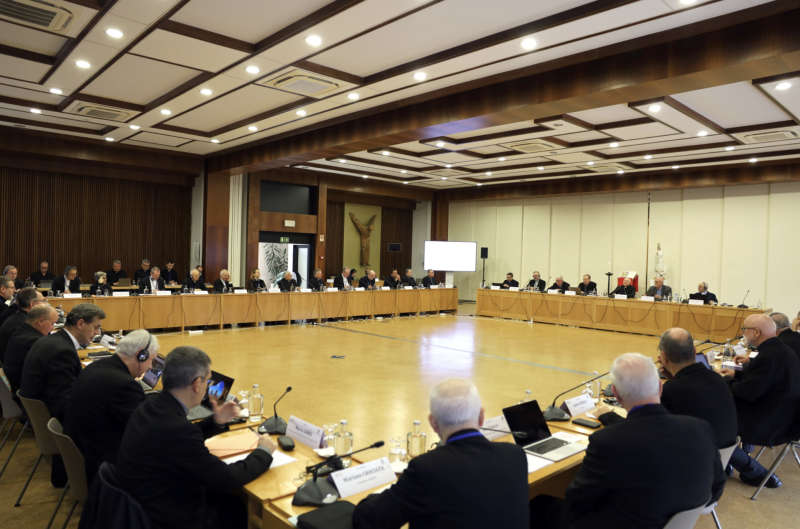The second day of the Plenary Assembly, 9 October, opened with Holy Mass and Morning Prayer – Lauds, presided over by H. Em. Card. Jean-Claude HOLLERICH, Vice-President of the CCEE. Afterwards, the participants heard the second keynote talk of the Assembly delivered by Prof. András MÁTÉ-TÓTH, Professor of Religious Studies at the University of Szeged in Hungary, entitled “How to be Missionary Disciples in a Secularised Europe. Socio-Theological Considerations: Pilgrims of Hope.”
In his lecture, Prof. MÁTÉ-TÓTH situated Europe’s current struggles within the long history of its East/West division, shaped by the fall of the Roman Empire, the Great Schism, and the Cold War, which left deep marks on identities. While Eastern Europe still bears the wounds of dictatorship, fostering desires for strong leaders and weak civil society, Western Europe often regards the East through stereotypes of backwardness.
Yet the sharp boundary is losing relevance, as shared crises such as migration, the pandemic, and Russia’s war against Ukraine reveal that Europe’s fundamental challenges are continental rather than regional. He highlighted how historical vulnerability in Central and Eastern Europe fuels nationalism, fear of external threats, and resistance to criticism—patterns now increasingly visible across the whole European continent. Ethical debates on the body (abortion, marriage, sexuality) and identity politics still reflect East/West differences, but internal divisions within societies are now more decisive than geopolitical borders.
Therefore, Prof. MÁTÉ-TÓTH pointed out that the Catholic Church must act as a bearer of hope. Drawing on the teachings of John Paul II, Benedict XVI, Francis, and Leo XIV, he emphasized the need for deepened faith, self-criticism, theological and social literacy, and independence from political interests. The mission of the Church, he concluded, is not to cling to numbers or influence, but to embody mercy, forgiveness, and trust. Europe should no longer be seen through the lens of East versus West, but as a wounded continent in need of healing, “a pilgrimage of hope” in which the Church can serve as a bridge-builder for unity and renewal.
After working group sessions and plenary debate, the day concluded with a visit to the Monastery of Batalhaand the Shrine of Nazaré, where the Presidents of the European Bishops’ Conferences celebrated the Vespers together.

